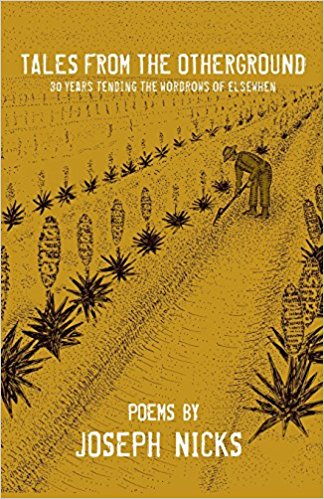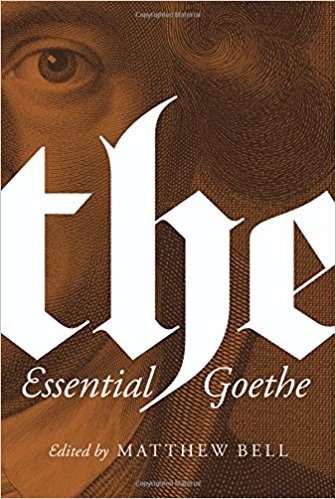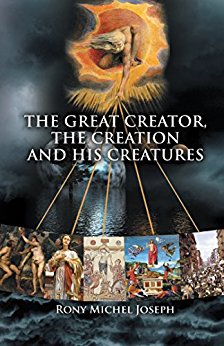Tales From The Otherground

$15.00
In this collection, spanning twenty years, Nicks ties these poems together with recurring themes and imaginative wordplay. Nicks creates his own vocabulary to describe previously indescribable concepts, such as “the wintering of day” or “for every living thing/ that’s ever come unlived.” My favorite example is in the poem “Down Fall,” in which he states “down beneath the bird-fled skies.” “Bird-fled” means something quite different than an empty or birdless sky.
Nicks’ wordplay startles the reader into new ways of looking at the world. For example, Nicks uses the repetition of homophones to lull you until you realize you misread a word and you reread the passage again with the new meaning.
“and now the burning leaves
enflame the trees….
and now the burning leaves
me: an emptiness, a withered hull…”
Nicks writes about seasons and weather as a reflection of inner life. Interestingly, there are similarities between poems written in different years when the poems were written during the same time of year. This shows how the changing of the seasons affects a change in the way the narrator perceives the world around him. The most obvious example of this occurs in two poems written in the last few days of October in 1999 and 2003. “Down Fall” reads, “relinquish to the winter all their colors” and “Suspended Animation” reads, “every color/…/ soon to be relinquished/ to the winter.”
The most pervasive theme is, of course, time. Nicks discovers different ways of measuring time and focuses on everything from the minutia of the time of day to the passage of years. For example, in “Little-Read Book,” the time it takes to read the dictionary is the time it takes to mourn a lost love. Nicks is able to capture, in words, the strange things that we all feel and think about but were never able to express ourselves. For example, when we are not ready for the old month to end and a new month to begin, he says “and on this thirty-eighth/ of April,/ guess it’s about time/ to start calling/ it May.”
The most emotionally wrenching poem is the last, “Aren’t You Happy??,” in which the narrator visits his sister in a mental health facility on Christmas Eve. As he leaves, he sees a man at the window “long after those of lesser faith/ had all gone off to bed…as his hopeful eyes still scanned the sterile skies.” The man, with a “beaming smile” asks the narrator “Aren’t you happy??,” referring to the expectancy of Christmas. The narrator thinks to himself “I had not a doubt/ that, in that happy corner,/ I’d just seen the saddest thing I’d ever see….” The sharp contrast of the man’s joy and the narrator’s heavyhearted empathy for this world-lost man is moving and painful, yet beautiful, because the narrator recognizes the tragedy and is able to share this story with us.
| Author | |
|---|---|
| Star Count | 4/5 |
| Format | Trade |
| Page Count | 150 pages |
| Publisher | Blue Jay Ink |
| Publish Date | 27-Oct-2014 |
| ISBN | 9780983119197 |
| Bookshop.org | Buy this Book |
| Issue | August 2015 |
| Category | Poetry & Short Stories |
| Share |







Reviews
There are no reviews yet.